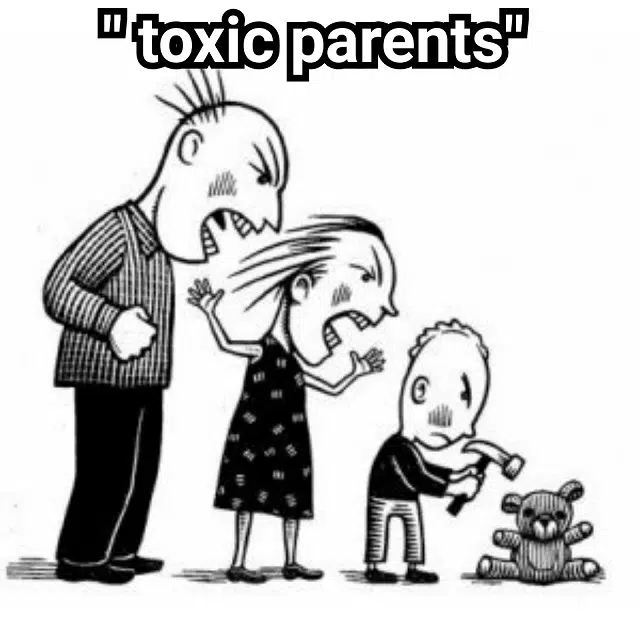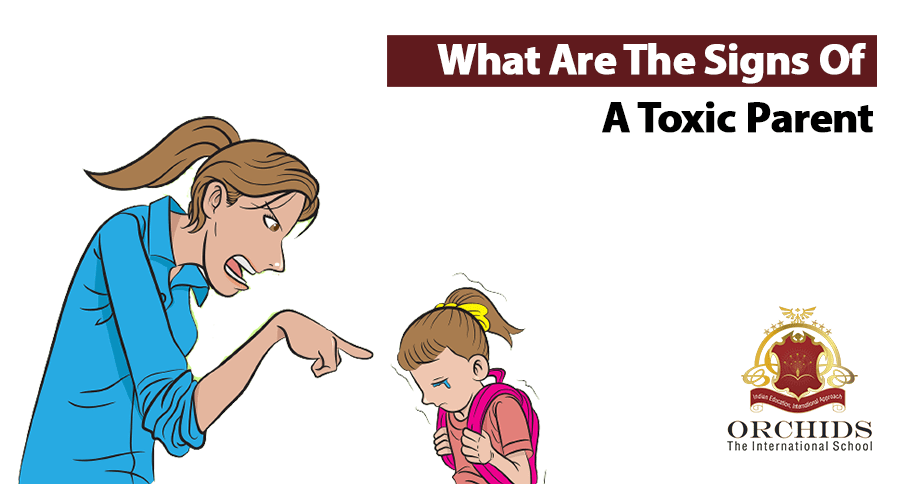Growing Up with Toxic Parents
If You Grew Up With Toxic Parents….
I was blessed not all of us can say the same thing!
Toxic Parenting Styles
What is toxic behavior?
Establishing and maintaining a right and healthy behavior with a child is a tiny thread to walk on. One step wrong, you are counted as toxic parents and it may leave a scar on your kid for years to come. If we go by nature and definition, a lot of actions, nature, conversation, and feelings stand under the umbrella of toxic behavior.
Especially, when it comes to a relationship between parents and how it affects children, it is evident that most parents are misinformed. They do not realize how toxic their behavior is until it reaches a point where the child becomes prone and starts showing consequential behavior in return.
If you observe your child showcasing rebellious and harsh behavior ask yourself where he or she grasps it from.
Behavior that is toxic can be of many types and forms
It can be through parents always filled with guilt, fear, and lack of self-control. All these are considered bad for children to go on with.
Parents who are toxic often –
- Overreact and create a scene while discussing matters
- Use inappropriate language
- Show a lack of interest in the child’s life and work
- Set their own benchmarks for kids and expect them to achieve it
- Try to control them
- Have a loud personality and yell too often
Is arguing a problem?
All these are small and big examples of toxic behavior and consistently constitutes harming the upbringing of children. Parents do not realize how their fights and issues are creating an aura around their children. Truth is it will completely manipulate and shatter the way he or she starts looking at things. This in turn will affect how they feel about relationships in the future.
How This Harms Children?
Family is the first society. Families no matter how big or small, play a key role for a child. They help in the understanding of how to perceive people, talk, interact and what is this world he or she is living in.
If a kid raised around toxic parents, for example, is being pushed, beaten, neglected, controlled, or abused, there are strong chances that these little episodes may put a scar on their personalities for their whole life.
- THEY ALWAYS FEEL SICK.
Children are as active as adults are. And we all should definitely drop the habit of saying – “oh, he is just a kid!”. In fact, in the initial years of growth, they are far more reactive and quick learners than most of the adults.
The toxic behavior they receive or see affects their mental health. Especially in situations like constant fights, abusive environments, and quarrels. This can tend to make them sick for days, crying and sobbing on their pillow not feeling well. And most importantly do not know how to vent it out and put in words how they feel.
- WET THEIR BED.
This is one of the most common traits children show as a fear and anxieties they have developed because of their parents. If a kid is old enough not to wet the bed and still he does, it is a severe warning. This means that the child is experiencing something bad and needs to be addressed immediately. As it may go on for years to come and become very chronic. Non treatment can result in an inclines towards impossible to cope up scenarios.
- FEEL STRESS AND DEPRESSED
People experience depression every day. Stress is a pressure that can be felt emotionally and physically. Children who had toxic parents become anxious in similar situations they have encountered in their childhood. And these stressful situations may lead to emotional breakdowns. Anxiety attacks can be lethal and are not good in social situations. Mental health disorders like Anxiety need to be addressed immediately.
- DEVELOP PHOBIAS
For example – A child watching their parents fight and getting physical with each other every day, may bring phobias with him or her throughout their life. They start perceiving pain and anxieties in different forms and start to lose their emotional capability and understand it as usual behavior.
A certain amount of fear gets settled in their mind regarding things and elements around them, it can be water, fire or even staircases! Such phobias are usually formed in childhood indicating their bad relationships, an incident, or family episode.
- BECOME SILENT AND UNEXPRESSIVE
Due to the constant fights and scenes they go through at home. They may try to become silent an non-expressive about themselves to their parents, soon this becomes their go-to behavior in social situations. And eventually are unable to manage and carry themselves in school, colleges and at work.
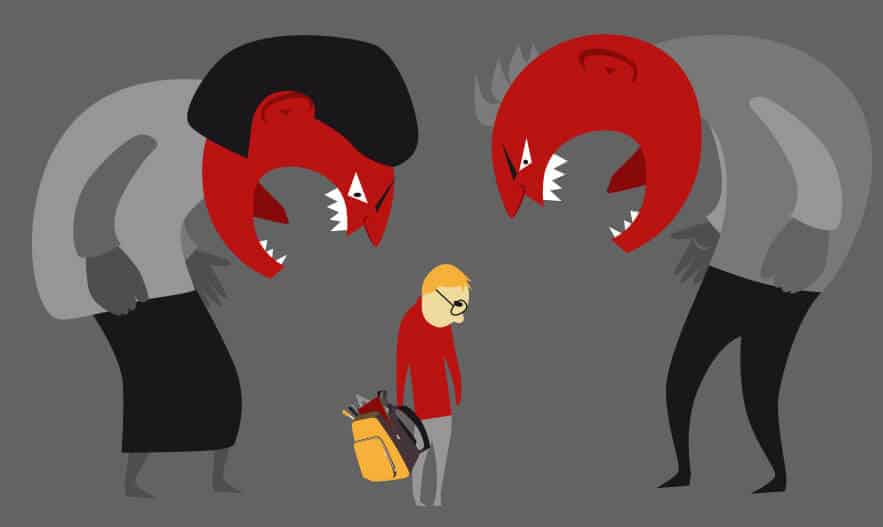
Ways To Avoid Toxic Behavior
No matter how bad your experiences are with them, or how much your adulthood is under the influence of their toxicity, always remember that only you can change it.
- ESTABLISH BOUNDARIES
When you establish boundaries make it very clear what is okay and what is not. How you want to be treated and what are the things that make you uncomfortable.
This not only helps avoid toxicity but also helps you enable yourself to create a personal space for yourself.
- DO NOT APPRECIATE THEM.
Every kid wants validation and approval from their parents. It’s okay. But do not do it if you have toxic parents. You need to make your own choices and stand up to them.
- LET THEM BE AS THEY ARE
As things start to go worse, you need to understand that it is not on you to change them, they were toxic for a long time and it has become their first reaction to everything and sometimes it’s best to leave things as they are and move on.
- BE WISE AROUND THEM.
Toxic parents are not to be trusted easily and having said that, you as a child need to play it wise around them, you need to understand what are the things that you should share with them.
Sharing every personal detail with them can lead to chaos. You can be friends with them but you shouldn’t trust them with all your emotions.
- TALK TO THEM
This may sound contrary to letting them be as they are, but talking to them can help. But only if you think that they are mentally stable enough to understand your point.
You need to sit with them and make them understand how their actions turned out to be pretty bad for you. At the start, this may seem pointless and tiring but you need to remember that it is only by saving them that you will save yourself.
- DON’T TRY TO REASON
You must learn how to avoid parents exhibiting toxicity and are irrational, there is simply no point in draining your energy trying to make them see what is right for them, it will break your heart to see how because of their toxic behavior they can’t form a healthy relationship but eventually, that is best for you.
- ESCAPE OUT
Parents who fight do not care about the environment they are creating for their kids, if you feel that the relationship between your parents is toxic and they are those parents who fight, abuse and quarrel all the time, it is better to leave the house and go for a run, jog, a walk-in nature (if it’s possible for you).
This way you do not let them ruin your mental health and energy.
- TAKE CARE OF YOURSELF
This goes without saying that you are the master of your own life and you certainly need to amend changes if your parents fight often and there is a toxic environment in your home or was in your childhood you must take simple measures and give yourself a priority.
Conclusion
Parent-child relationships often get ruined because of immature behavior and vulnerable emotional capabilities of parents in their relationship. Thus, it is better to take one step at a time and change the equation of the parent’s relationship with the child for good, one that doesn’t harm their childhood. source
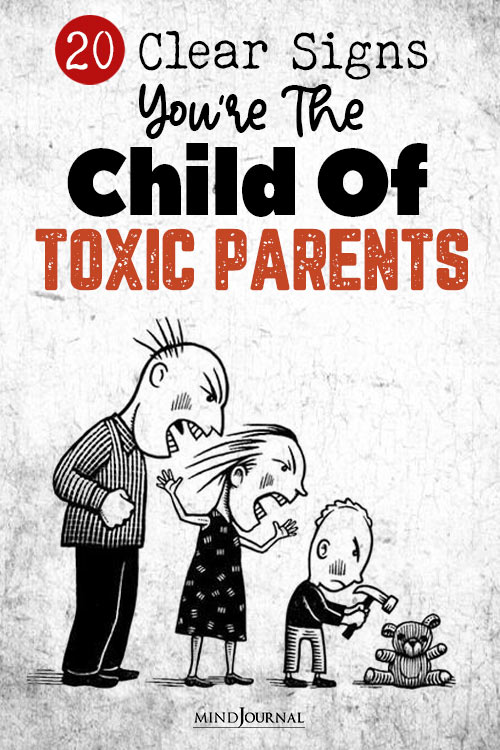
20 Clear Signs You Are The Child Of Toxic Parents
Children are often encouraged and taught to explore the hidden and uncharted by their parents who support and love them unconditionally. But is this the truth for everyone out there? Unfortunately, not everyone is blessed with good parents, and children of toxic parents know exactly how that feels.
Toxic parents are often very dominating, abusive, and manipulative and only want their children to dance to their tunes. What their children want, and how they feel do not matter to them in the slightest. They never think about how their actions are affecting their children and their mental health, and only care about satisfying their own egos.
That’s why, it’s no wonder that so many people coming from toxic families carry a lot of trauma, that haunts them even when they step into adulthood.
So, do you have toxic parents? Let’s find out more about it!
1. Your parents always refuse to respect your boundaries, and are too assertive about their dominance.
2. Children of toxic parents are always made fun of and even belittled about things they are insecure about, like their weight, career, salary, or relationship status. Such parents love making you feel worse about things that are already a source of your anxiety and depression.
3. At home, only your parents’ needs and wants mattered, and yours never did. You always came last and were always made to feel like a burden.
4. When your parents are upset, they resort to passive-aggressive behavior and often gave silent treatment to you. If you had siblings, they made sure that they treated them better than you, so that you felt worse and more broken about it.
5. Children of toxic parents are always criticized socially and publicly but are never given any support, compliments, or even encouragement in times of dire need.
6. Growing up in a toxic family, you always struggled and still struggle to show your true emotions, especially the painful ones. If you felt hurt, you used to cry in silence and alone, because you knew nobody would understand, rather you would be made to feel worse about it.
7. Because you had toxic parents, you always had trouble coming to terms with your feelings and emotions in a healthy way. You always doubt your feelings and dismiss your pain as something that’s not at all important.
8. You constantly thought or maybe you still do that your parents would behave differently if you were a lot better, smarter, and successful.
9. Toxic parents can intentionally make a child feel guilty when they do not get what they want, and the same thing happened to you too. Whenever you refuse to do something they blindly want you to do, they play the blame game and try to make you feel bad about it, just because you chose to take a stand for yourself.
10. Children of toxic parents always hesitate to share their achievements and accomplishments with their parents, because they know that they will undermine them, and uselessly criticize everything, just to hurt them and make them feel worthless.
11. They always want your respect, praise, and attention, but will never give you any.
12. You are forced to do things and participate in activities that only serve their interests. The fact that you never like doing any of it, does not make any difference to them whatsoever.
13. They taught you to be respectful towards them, solely through intimidation, fear, guilt, and threats. You are made to feel that if you did not do what they expect you to, you will be faced with dire consequences.4. You were gradually molded into a submissive person who was an absolute pushover, or you grew up to be someone who was inappropriately rebellious; someone who was always involved in some kind of trouble or the other.
15. Toxic parents always use money and guilt to manipulate you, which proves to be disastrous for your personality and mindset. You are constantly reminded of how much you “owe” them even for things they did not provide, or things that were their responsibility to provide you.
16. There have been times when your parents made you feel unwanted and a burden on them, by constantly reiterating the opinion that they never wanted you in the first place. That you were an accident, and they wish they would have been childless.
17. They often blame you for any inappropriate reaction and bad behavior, and conveniently ignore the fact that this might be the result of the trauma they inflicted on you when you were a child, and maybe they still do.18. You feel terrified to own up to your mistakes publicly, which shows that you have severe personality problems that need attention and maybe even professional help.
19. Your parents believe that constant negative reinforcement and “tough love” are the only ways to make sure that you grow up to be a strong and successful person, and not love, encouragement and affirmation.
20. You always feel scared and apprehensive about trying out new things, and listen to your heart, because you are convinced you will fail. This is because you were always made to feel inadequate and not good enough by your parents.
If you notice even half of these characteristics in your parents, then be rest assured that you have toxic parents. Don’t let their negativity and toxicity get to you, and have faith in yourself and your abilities. Be kind to yourself, and treat yourself with love and compassion, because you deserve it. source
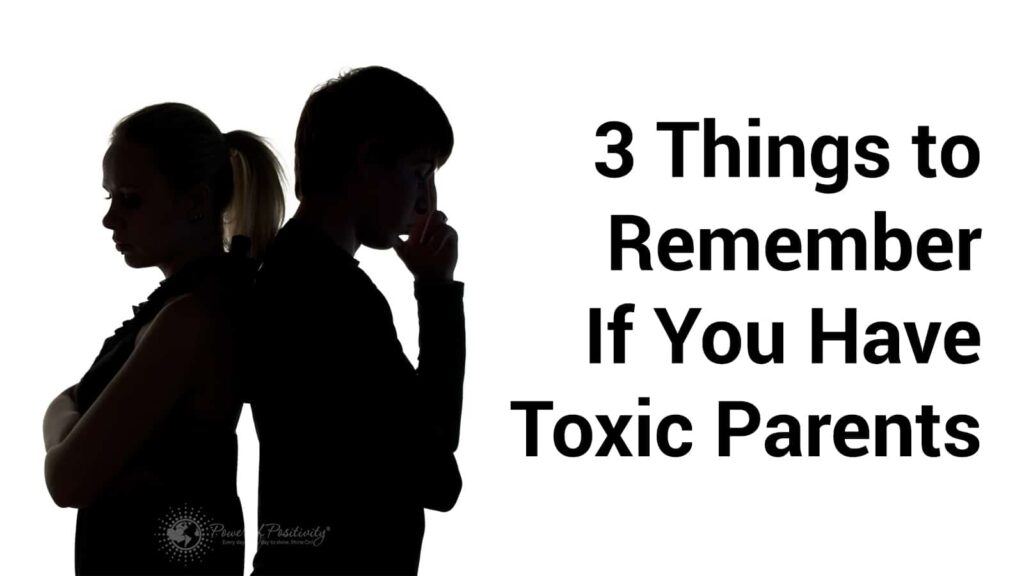
3 Things to Remember if you have Toxic Parents
We did not arrive here alone. We have come into this life through a mother and a father. Even if your parents weren’t available, or they are narcissistic and toxic, your existence here is due to them. Very few of us can attest to having perfect childhood stories. Some of us can’t even remember having that great of times with our families. We all have moments. We have all suffered through our parents’ mistakes. They truly have done the best they could under their capacity. They, too, had teachers who taught them things and had misfortunes. We cannot go around divorcing our parents for all the toxic energy they continue to instill in their presence.
According to AARP, there are some suggestions for parents on how to endure when their children want nothing to do with them. This is also helpful in dealing with our own acceptance and issues when it comes to them:
- Own up to your mistakes
- Accept contrary view
- Avoid guilt trips
- Hear them out
- Wait…then wait some more
- Don’t give criticism or advice
Parents are our first teachers. They are our first superheroes. They become our mentors and the first link to the outer world. Unfortunately, not all parents should be parents. They don’t have the emotional ability to even care for themselves. For those of you who know this firsthand, here is some advice on dealing with your parents’ toxic attitudes.
1. You have survived the unthinkable.
Our parents mold us from the very moment of conception. Studies have shown that babies absorb language when they are in the womb during the last 10 weeks of pregnancy. Dr. Patricia K. Kuhl of Bezos Family Foundation, author and researcher at the University of Washington in Seattle says, “The main message for new moms is that their babies are listening and learning and remembering during the last stages of pregnancy. Their brains do not wait for birth to start absorbing information. Therefore, the journey of parenting doesn’t start when the child is born. It starts in the womb. Any external psychological, emotional and physical issues are transferred to a child before opening up his or her eyes into this world.”
Your parents teach you the fundamental parts of existence: survival, existence, and your place in the world. Unfortunately, not all parents should be teachers either. They, themselves, did not have the grounding and rooting of good parents. Many of you have had no love, felt the disconnection through physical and emotional abuse, and the turmoil of feeling worthless. And yet, here you are! Here you are moving through this world in your unlimited capacity. Your parents have taught you a grand lesson: you get to decide what you are and who you are regardless of your upbringing. You are not limited or incapable of change.
You’ve morphed and have evolved to become you. You don’t have to speak to your parents or acknowledge them for everything, but you do have to forgive them and yourself in the process. You forgive yourself for believing the smallest and largest parts of childhood. Some of the things parents do to their offspring are unthinkable, inconceivable and horrific. You get to decide how you move in this world because of your past. You have the ability to change the stories by not reliving the stories.
2. You give the same amount of respect that you receive.
Criticism is not a death sentence. If judgments, dishonoring and belittling were swords or guns, we would be dead. They are not. For every harsh remark, critique, opinion and negative scorch our parents have made, we get to use that as a choice to do better or be smarter. Sometimes parents want the best for us and believe that by coming down on us, they are encouraging a change. At times, parents do not know boundaries. They feel entitled to voice every opinion to their children. They intersect, input and inform over and over regardless of how you try to stop them.
Your parents are the first group of people in your life that you trust. As adults, you don’t have to anymore. You do not owe them a life sentence. You get to show the same respect that you have been instilled with during this journey. We don’t have to walk on our tiptoes swallowing all the toxic energy. We have had amazing teachers in our parents to know how much to tolerate. Respect, trust and love are earned. It doesn’t matter if it’s a parent, a sibling, a boss, a mate, or a stranger.
3. We are mirrors of one another.
What have you learned from your parents? Try to remember the good things as well. They might be small in comparison, but your parents have taught you great things about yourself. Are you strong, smart, or successful? Did you get a talent from one of them? Did you learn what not to be with your own children? Have you experienced a great awareness because of a parent’s abuse, unthinkable behaviors, and exploitation? Sometimes, we become the things we hate and try deeply to avoid, while other times, they show us what not to become. source
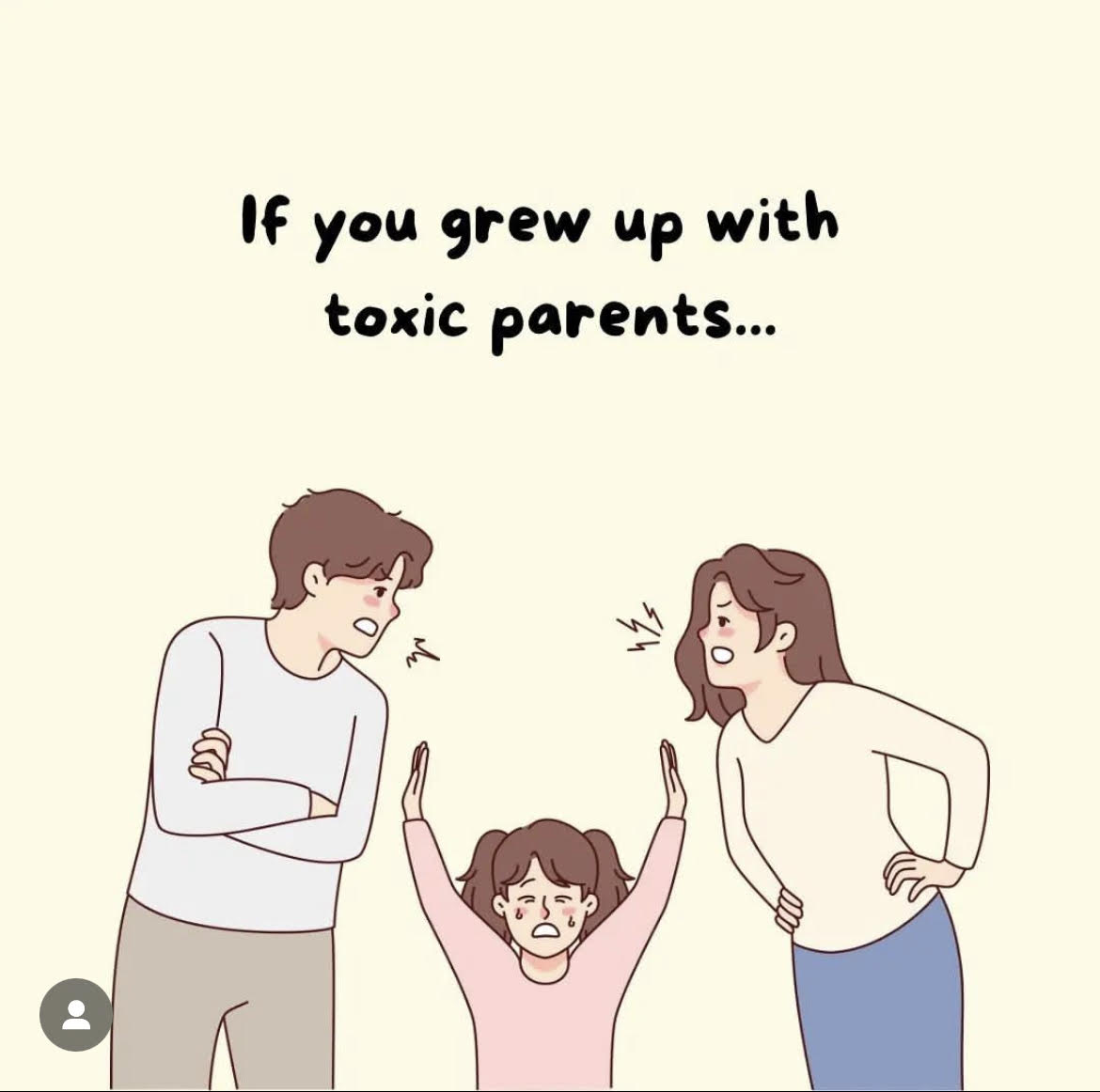
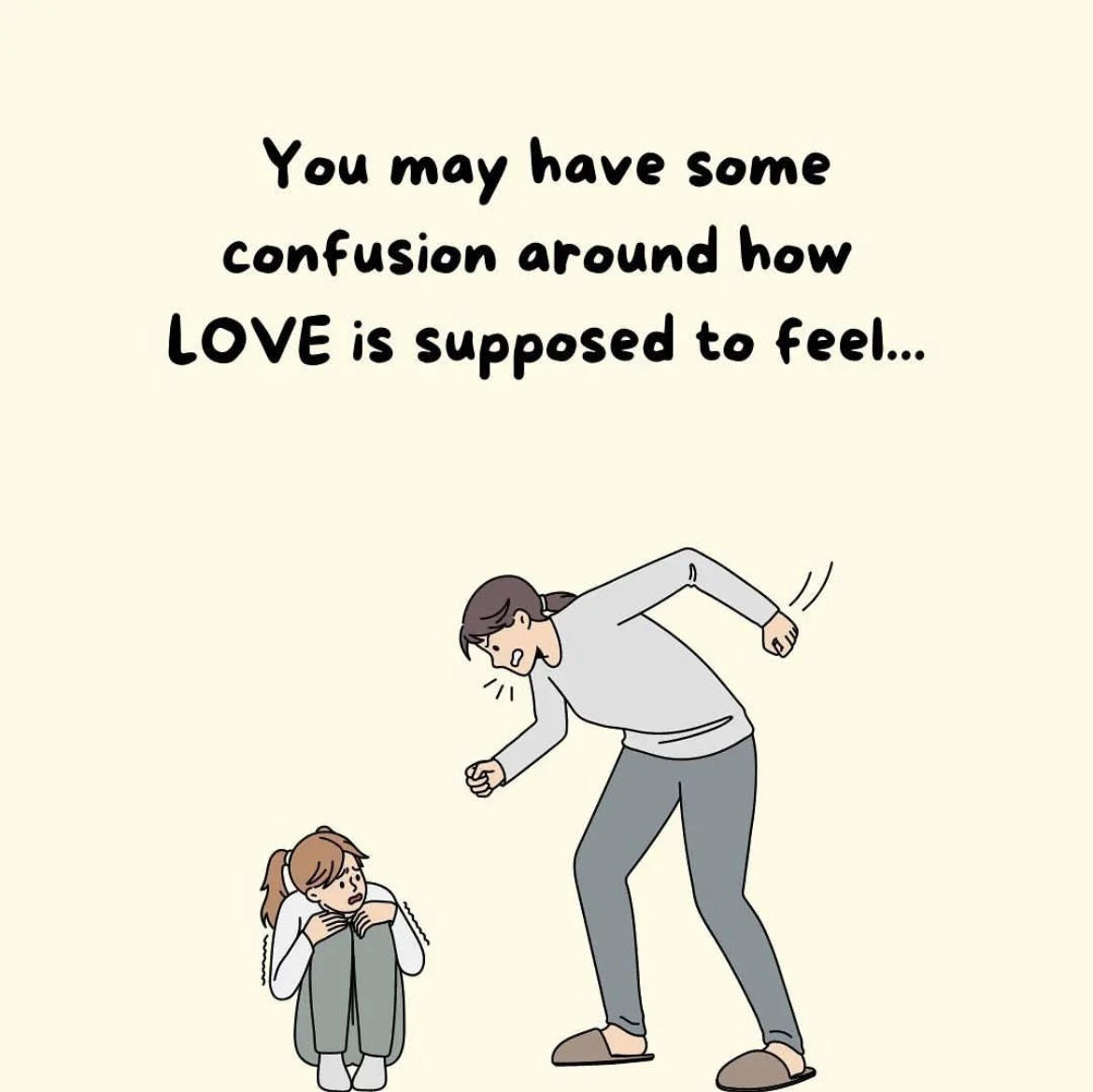
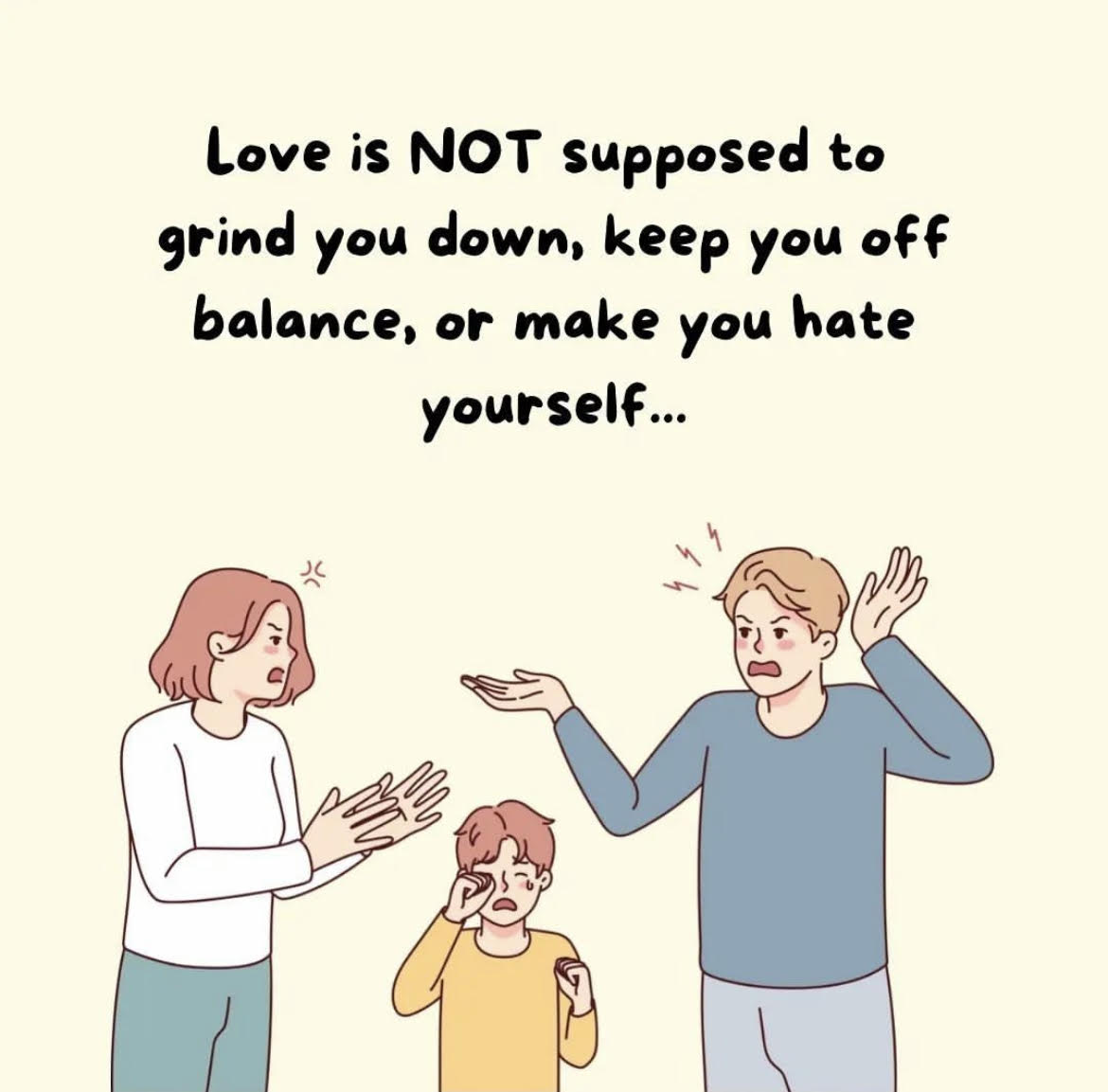
\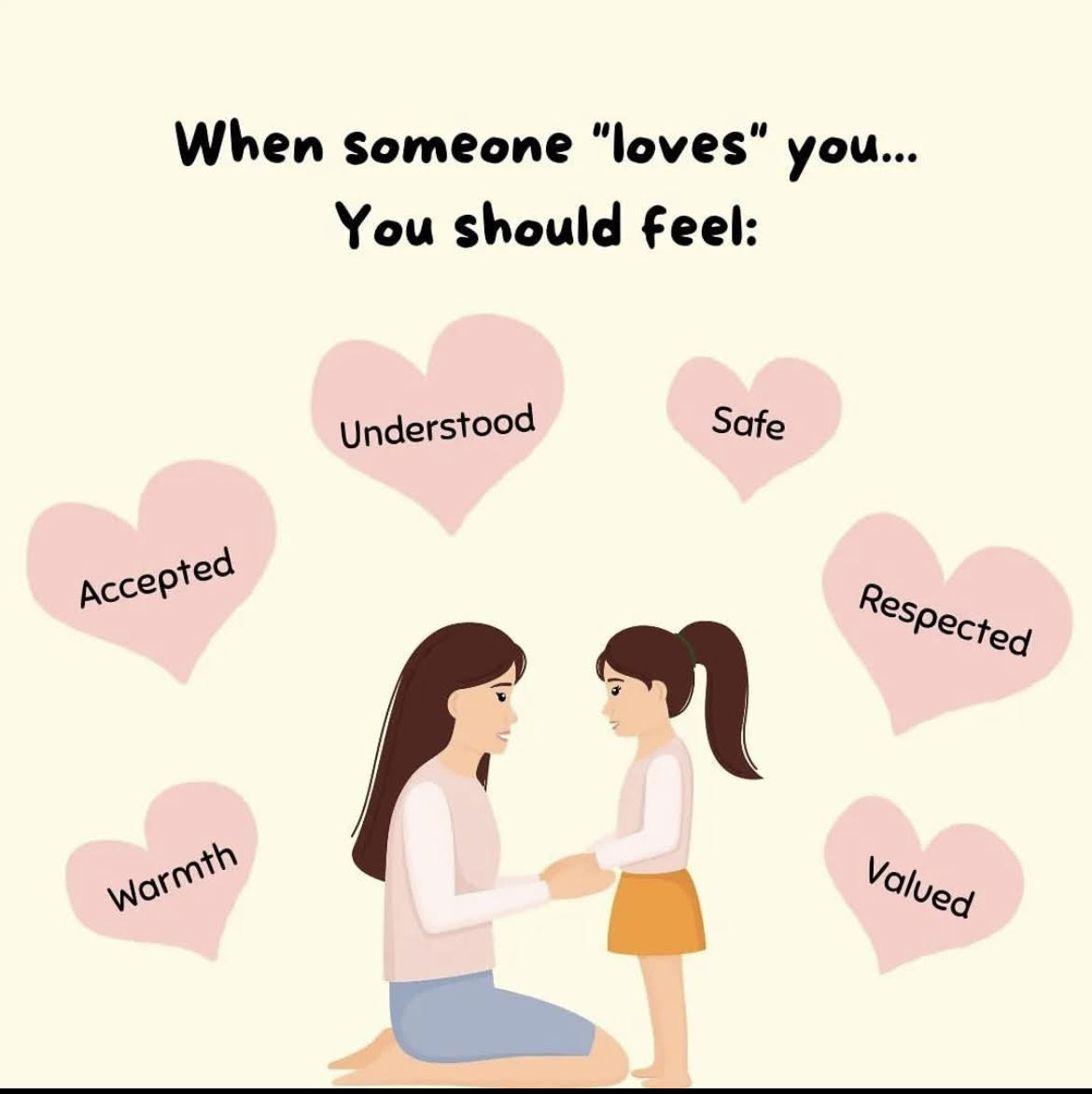

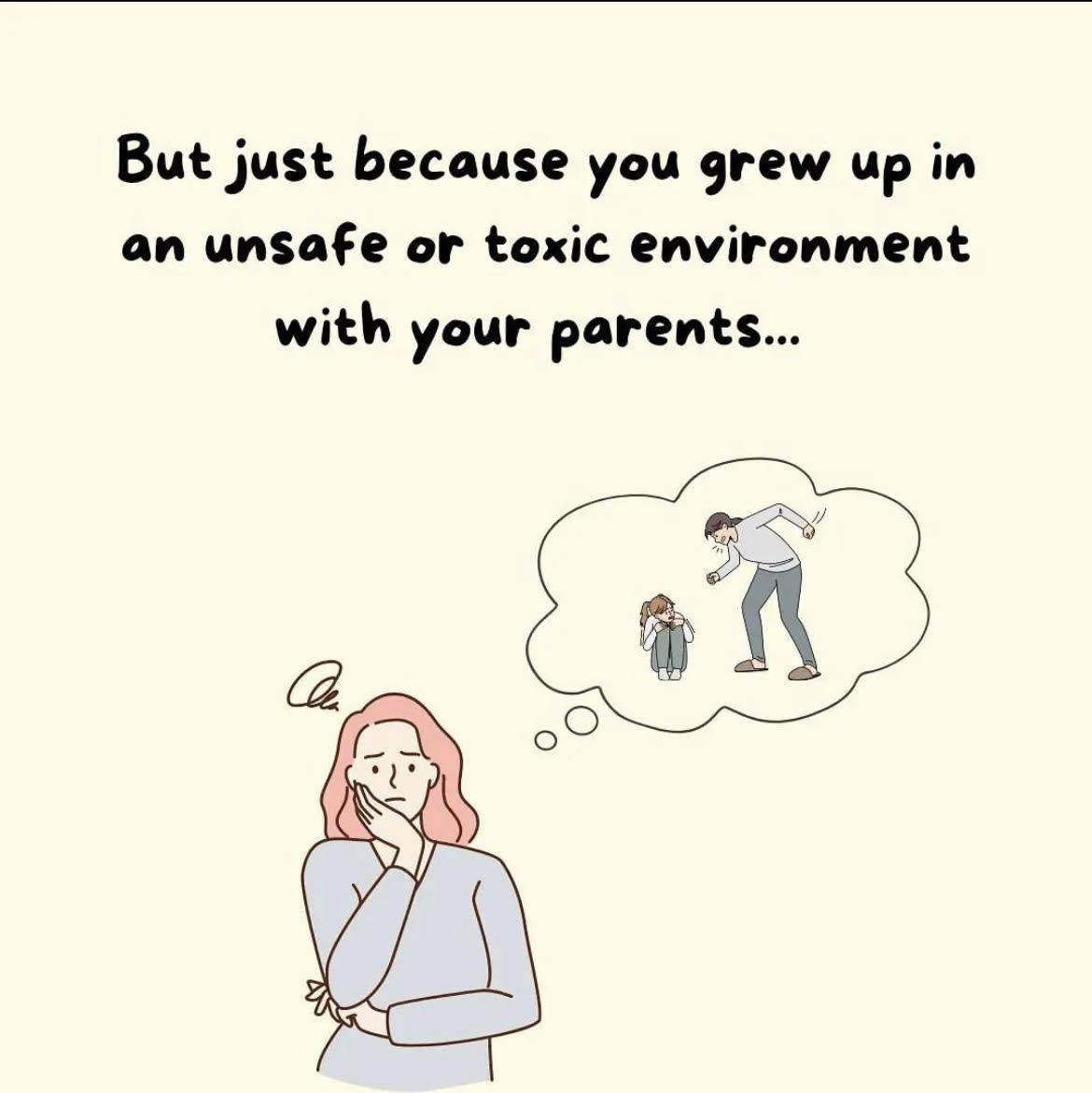
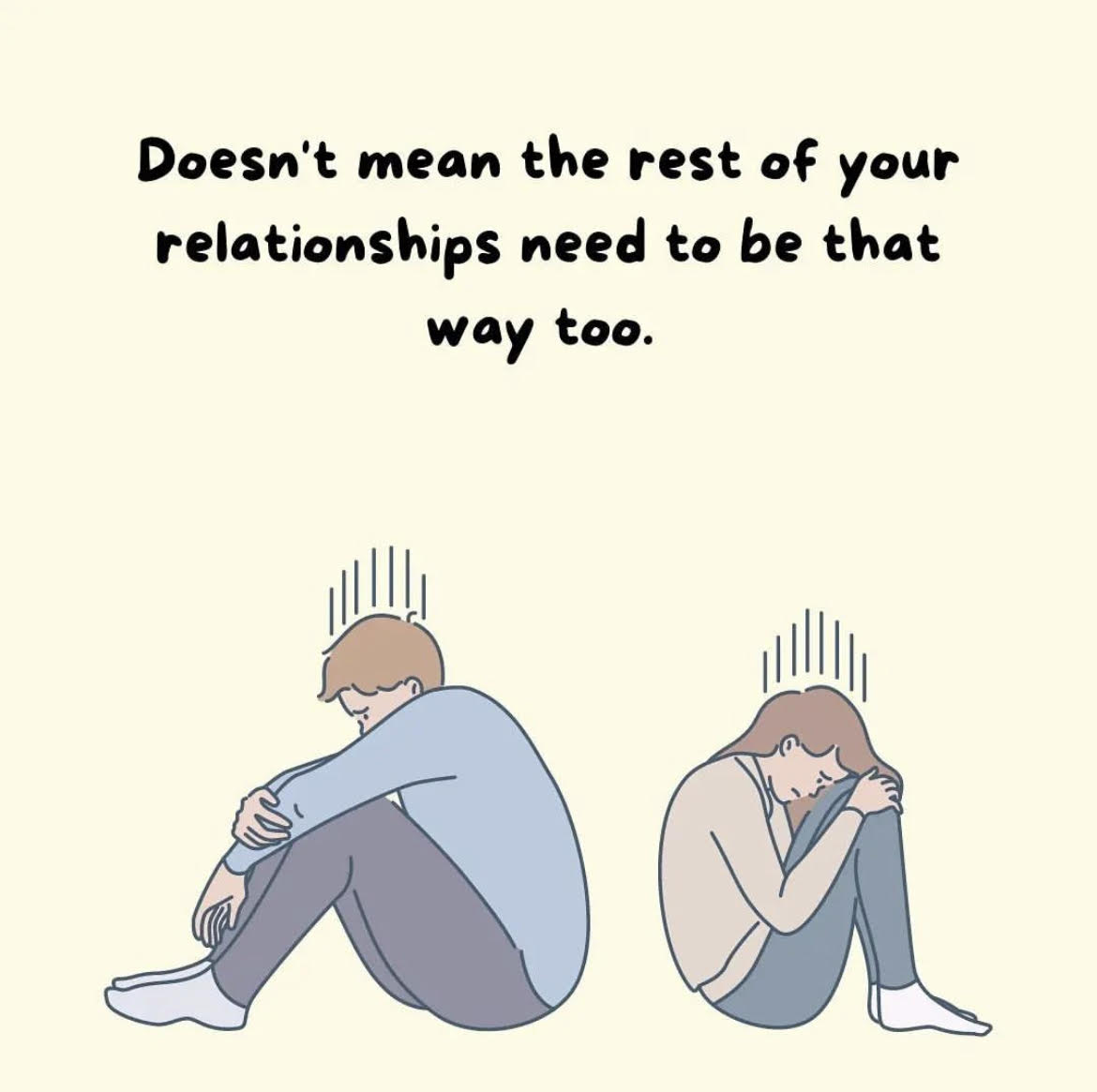
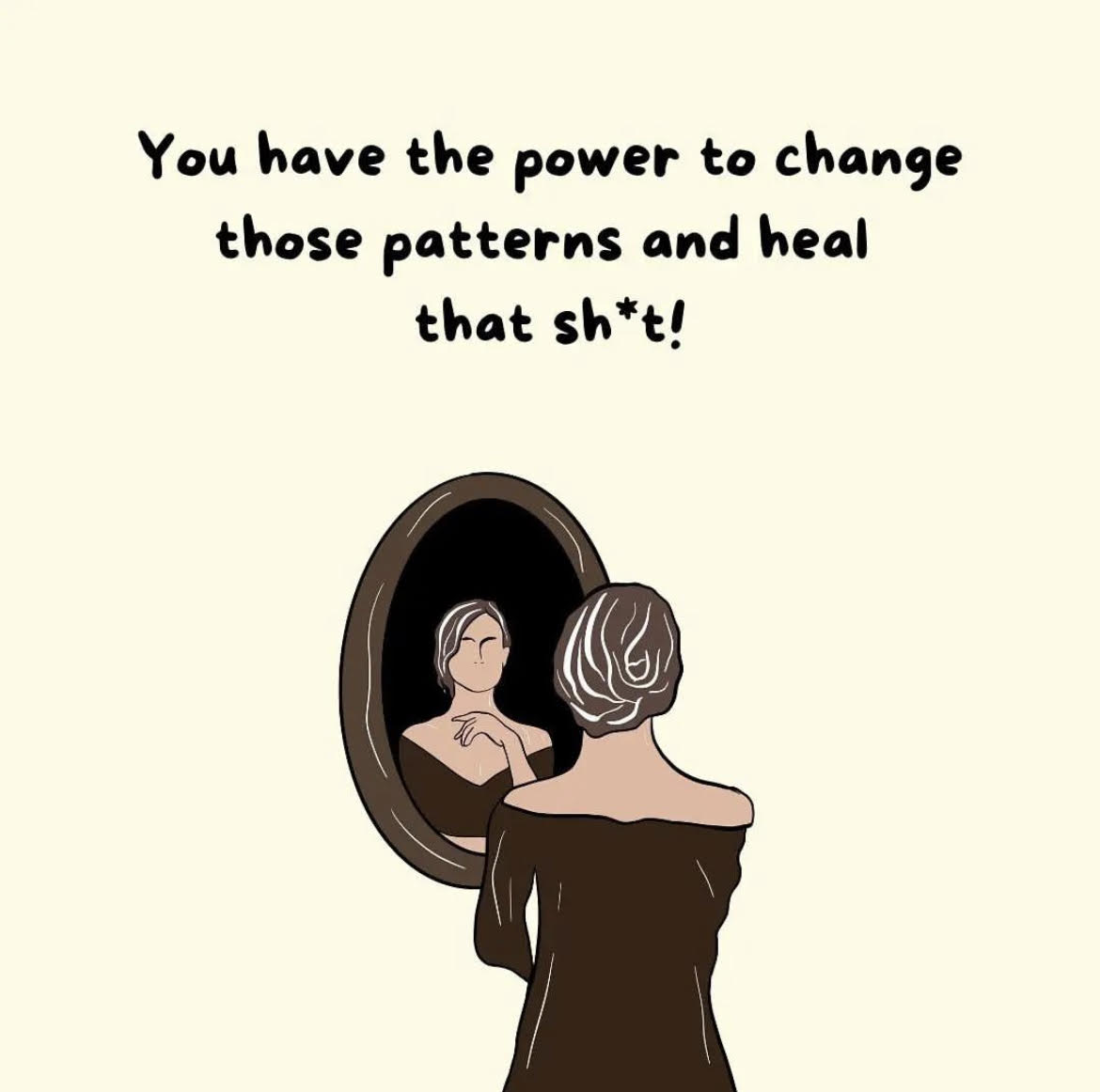

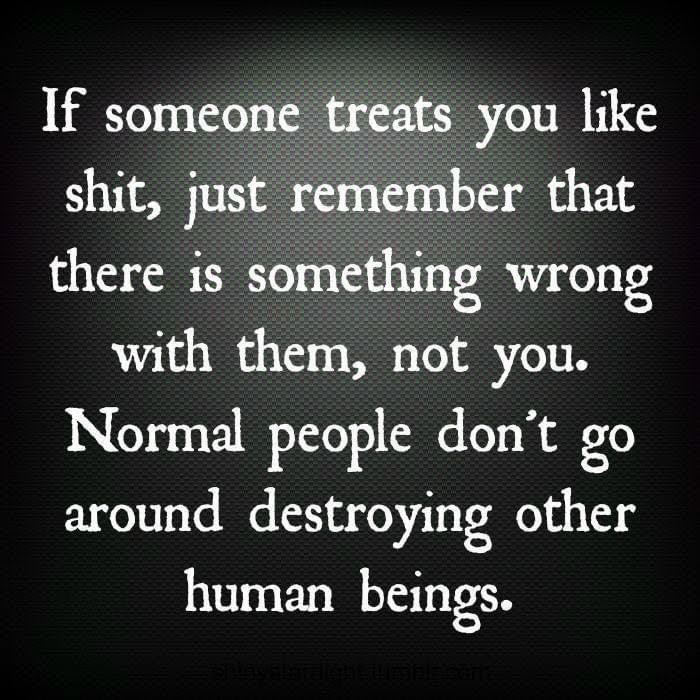
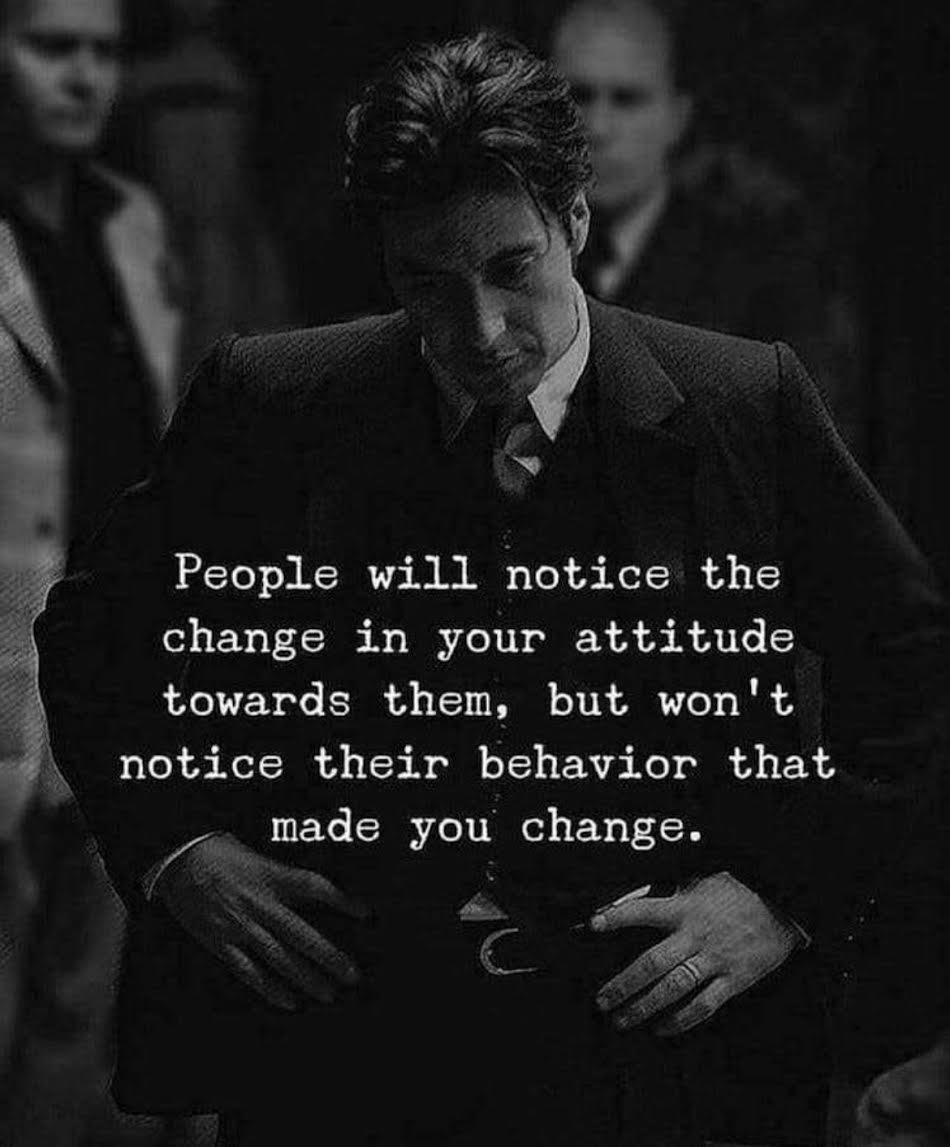
 Author PeeToo Dazee
Author PeeToo Dazee

